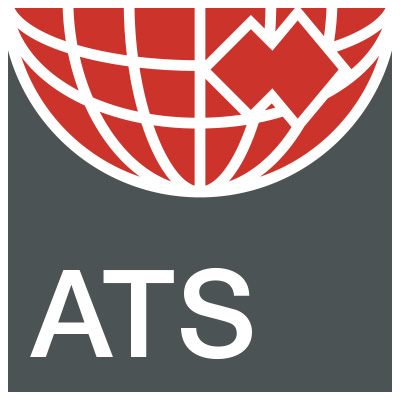
Australasian Taxation Services
Your Australian Taxation Specialists

Australasian Taxation Services
您的澳大利亚税务专家
Tax Considerations for Australian Property Investors
澳大利亚房地产投资者的税务考虑因素
Income Tax
Foreign investors acquiring Australian property are required to account for the taxation matters on Australian property only. No foreign source income is generally taxable in Australia. The following issues need to be attended to.
Tax File Number
Once, you have acquired a property with the intention of earning income from rent, you must register with the Australian Taxation Office and obtain a tax file number. If you have not already done so, you will need to complete a Tax File Number Application in full, accompanied by the required proof of identity documents. Original documents are required and will be returned without delay, by registered mail. Alternatively, copies certified by the Australian Consulate can be provided. ATS can assist in this regard.
Income Tax Return
Australia's financial year is from 1 July to 30 June. Our laws require every person or corporation to lodge an income tax return if any income has been earned or any expense incurred within that period. The return is due for lodgement on the 31st October following the year of income. If you appoint ATS to handle your taxation affairs, we will obtain a special extension of time to lodge your return after 31 October without penalty. The return must state the gross income received from all sources within Australia and a claim may be made for any expenses relating to that income.
Income Tax
Australian Income Tax is levied on your Taxable Income not total income. Taxable Income is calculated as your gross rental income (from all properties owned) less any allowable deductions incurred in earning that income. If a surplus of income results, tax is levied at the prevailing non-resident rate of tax. Common deductions you will be able to claim include
- Advertising for tenants
- Agents commission for managing the property
- Gardening and maintenance
- Insurance - property and contents
- Interest on loans used to finance the property
- Lease preparation costs, council rates and land tax
- Travel and car expenses
- Telephone, facsimile and postage
- Travel costs incurred when visiting Australia can be claimed, provided they are incurred principally to inspect the rental property and are reasonable.
Australian Income Tax Legislation requires that in order to claim any deductions, you must have documentary evidence to substantiate the claim. These records must be kept for five years after lodging the return to which they relate. Failure to do so may result in your claim being disallowed and penalties being charged. The Australian Government also provides incentives for property investors in the form of additional tax deductions. These include
- Depreciation - on furniture, fittings and equipment used in the rental property
- Building Write-Off - 2.5% per annum of construction cost of new buildings
- Borrowing Expenses - amortisation over five years for the full cost of establishing a loan
It is important to note that if your expenses exceed your rental income then no income tax is levied. The annual loss may be carried forward indefinitely to offset future Australian income or capital gains. As our taxation system is federal based, any loss made on one property can offset the income or capital gain of another property regardless of the property's location in Australia.
Capital Gains Tax
In Australia, Capital Gains Tax is levied on profits made on the sale or transfer of assets. When you sell your property, the excess of the sale price over the purchase price is a capital gain. For anyone living permanently in Australia, Capital Gains Tax applies to any assets located anywhere in the world. For those living out of Australia, including Australian expatriates and foreign nationals holding Australian Residency Visa's, only profits made on Australian based assets such as property is taxable. No Capital Gains Tax is payable on listed shares. When determining how much of the capital gain is taxable, allowance is made for any selling costs and improvements. Should a capital loss be incurred, then no tax is applicable and the amount of the loss is available to be carried forward indefinitely to offset any future capital gains. However, if a surplus still exists and the property has been owned for longer than twelve months, then half of the gain is included as part of your taxable income and may be further reduced by any income or capital losses made either during the same financial year or any previous year.
2012 Budget Announcement
In the 2012 Federal Budget there was an announcement made that will remove the 50% Capital Gains Tax Free Concession for Non Resident Taxpayers (including Australian Expatriates). This change became effective from 8th May 2012. As a result of these changes now becoming law we have summarised the main issues below:
- Property owned prior to the 8th May 2012 will still enjoy the 50% CGT Free amount for profits to that date.
- A sworn valuation may need to be arranged and we have arranged a bulk deal for our clients. You can register for this by emailing cgtchange@smats.net
- I would only suggest arranging a valuation if you intend to sell your property in the near future.
- If you sell the property when living in Australia as a Tax Resident, the 50% CGT Free benefit will still apply to all gains but will be reduced on a pro-rata basis for any time spent living abroad after the 8th May 2012. Hence if you do not need to sell while living abroad then you should keep your property until you return as it will improve the overall position.
Goods and Services Tax
The rate of GST in Australia is set at 10% and is charged upon the value of the good and service. Importantly under law, the price you are quoted will always include GST unless it is clearly stated otherwise, so in most cases you will not need to be concerned that an additional amount will be charged.
Residential Property Investment
GST is not levied on the rent collected on residential property, interest on any loan taken out to acquire the property or on the government services charges. GST is imposed on the provision of maintenance services, property management and other ownership costs, however the yearly additional cost for a property investor will be negligible. GST is also charged when a new property is first sold by anyone in the business of property development. This will be already factored into the price quoted unless otherwise stated. Purchasers should not be concerned with the additional cost as the value and quality of Australian construction will still remain one of the highest in the world. It also ensures the longevity of the significant tax incentives offered by the Australian Government to new property investors.
Most importantly for foreign owners is the fact that no GST is levied when you sell your residential property investment.
Commercial Property Investment
For owners of Commercial property, it may be required for you to charge your tenant GST if your annual income from rent is in excess of A$75,000. In such cases you will be required to register for GST with the Australian Taxation Office and on send the GST collected less any GST that you may have paid on your property expenses, on a monthly or quarterly basis. Also when you buy and sell your Commercial property, there may be a requirement to charge GST on the sale price, so you must ensure you seek advice to determine the impact, particularly as the price is deemed to include GST unless otherwise stated.
Property Development
If you intend on doing any Property Development in Australia, then you will need to fully assess the GST implications. This area is very complicated and should only be undertaken after seeking and obtaining quality advice.
Operating a Business
GST will need to be considered if you are operating a Australian business from abroad or intend to move to Australia. You will need to register with the Australian Taxation Office and report monthly or quarterly if turnover is in excess of A$75,000. GST will need to be charged on all Australian Sales, excluding a few industries such as Health Services, and you will be entitled to offset GST paid on services and supplies by your business.
所得税
收购澳大利亚房产的外国投资者只需承担澳大利亚房产的税务事宜。 在澳大利亚,外国来源收入通常不征税。 需要注意以下问题。
税号
一旦您获得了旨在从租金中获得收入的房产,您必须在澳大利亚税务局注册并获得税号。 如果您还没有这样做,则需要完整填写税号申请表,并附上所需的身份证明文件。 原始文件是必需的,将通过挂号邮件立即返回。 或者,可以提供澳大利亚领事馆认证的副本。 ATS可以在这方面提供帮助。
所得税申报表
澳大利亚的财政年度为7月1日至6月30日。 我们的法律要求每个人或公司在获得任何收入或在此期间内发生的任何费用时提交所得税申报表。 报税表将在收入年度之后于10月31日递交。 如果您指定ATS处理您的税务事宜,我们将获得特别延长的时间,以便在10月31日之后提交您的退货而不会受到处罚。 退货必须说明从澳大利亚境内所有来源收到的总收入,并且可以就与该收入有关的任何费用提出索赔。
所得税
澳大利亚所得税是根据您的应税收入而非总收入征收的。 应纳税所得额按您的总租金收入(来自所有拥有的物业)减去赚取该收入所产生的任何可允许扣除额计算。 如果产生盈余,则按现行非居民税率征税。 您可以声明的常见扣除包括:
- 租户广告
- 代理商负责管理物业
- 园艺和维护
- 保险 - 财产和内容
- 用于资助房产的贷款利息
- 租赁准备费用,议会费率和土地税
- 旅行和汽车费用
- 电话,传真和邮资
- 访问澳大利亚时可能会产生旅行费用,前提是他们主要是为了检查出租物业而且是合理的。
澳大利亚所得税立法要求,为了要求任何扣减,您必须有文件证据来证实索赔。 这些记录在提交相关回报后必须保存五年。 如果不这样做,可能会导致您的申请被拒绝,并会被处以罚款。 澳大利亚政府还以额外的税收减免形式为房地产投资者提供奖励。 这些包括:
- 折旧 - 用于出租物业的家具,配件和设备
- 建筑注销 - 每年2.5%的新建筑建筑成本
- 借款费用 - 为建立贷款的全部费用在五年内摊销
重要的是要注意,如果您的开支超过您的租金收入,则不征收所得税。 年度亏损可无限期结转,以抵消未来澳大利亚的收入或资本收益。 由于我们的税收制度是以联邦为基础的,因此无论房产在澳大利亚的位置如何,任何一处房产的损失都可以抵消另一处房产的收入或资本收益。
资产增值税
在澳大利亚,资产收益税是对出售或转让资产所产生的利润征收的。当您出售您的房产时,超过购买价格的销售价格超出资本收益。对于永久居住在澳大利亚的任何人,资本收益税适用于位于世界任何地方的任何资产。对于居住在澳大利亚以外的人,包括澳大利亚外籍人士和持有澳大利亚居留签证的外国人,只有在澳大利亚的财产(如财产)上获得的利润才应纳税。上市股份无需缴纳资本利得税。在确定应缴纳多少资本收益时,可以考虑任何销售成本和改进。如果发生资本损失,则不适用任何税收,并且损失金额可以无限期结转以抵消任何未来的资本收益。但是,如果盈余仍然存在且房产已拥有超过12个月,那么一半的收益将作为您应纳税所得的一部分,并可以通过同一财政年度内的任何收入或资本损失进一步减少。或任何前一年。
2012年预算公告
在2012年联邦预算中,有一项声明将取消非居民纳税人(包括澳大利亚外籍人士)50%的资本收益免税优惠。 此更改自2012年5月8日起生效。由于这些更改现已成为法律,我们总结了以下主要问题:
- 2012年5月8日之前拥有的房产仍将享有截至该日期50%的CGT免费利润。
- 可能需要安排宣誓估价,我们已为客户安排了大宗交易。 您可以通过电子邮件注册 cgtchange@smats.net
- 如果您打算在不久的将来出售您的房产,我只建议安排估值。
- 如果您作为税务居民在澳大利亚居住时出售该物业,则50%CGT免费福利仍将适用于所有收益,但将在2012年5月8日之后在国外生活的任何时间按比例减少。因此,如果 你不需要在国外生活时出售,那么你应该保留你的财产,直到你回来,因为它会改善整体地位。
商品和服务税
澳大利亚的商品及服务税税率定为10%,并按商品和服务的价值收取。 重要的是,根据法律规定,您引用的价格将始终包含商品及服务税,除非另有明确说明,因此在大多数情况下,您无需担心会收取额外费用。
住宅物业投资
商品及服务税不征收住宅物业的租金,任何购买物业的贷款利息或政府服务费。 GST是提供维护服务,物业管理和其他所有权成本,但房产投资者的年度额外成本可以忽略不计。 当房地产开发业务的任何人首次出售新房产时,GST也会收取费用。 除非另有说明,否则这已经考虑在报价中。 购买者不应担心额外费用,因为澳大利亚建筑的价值和质量仍将是世界上最高的之一。 它还确保了澳大利亚政府为新房地产投资者提供的重大税收优惠的持久性。
对于外国业主来说,最重要的是,当您出售住宅物业投资时,不会征收商品及服务税。
商业地产投资
对于商业物业的所有者,如果您的年租金收入超过75,000澳元,则可能需要向您的租户征收商品及服务税。 在这种情况下,您将被要求向澳大利亚税务局注册商品及服务税,并在每月或每季度将收取的商品及服务税减去您可能已支付的物业费用的商品及服务税。 此外,当您购买和出售您的商业地产时,可能需要按销售价格收取商品服务税,因此您必须确保寻求建议以确定影响,特别是因为价格被视为包括消费税,除非另有说明。
房地产开发
如果您打算在澳大利亚进行任何房地产开发,那么您需要全面评估GST的影响。 这个领域非常复杂,只有在寻求和获得高质量的建议后才能进行。
经营业务
如果您从国外经营澳大利亚企业或打算搬到澳大利亚,则需要考虑商品及服务税。 如果营业额超过75,000澳元,您需要在澳大利亚税务局注册并每月或每季度报告一次。 GST将需要收取所有澳大利亚销售费用,不包括健康服务等少数行业,您将有权抵消您的业务所支付的服务和用品的GST。

Need Australian Tax Advice?
Speak to our friendly ATS team for all your Australian taxation enquiries and take advantage of our free property tax estimator for Australian property investors.
